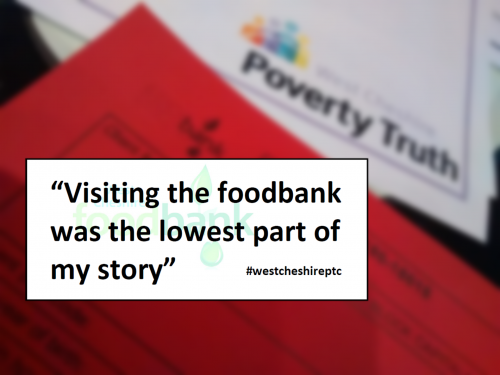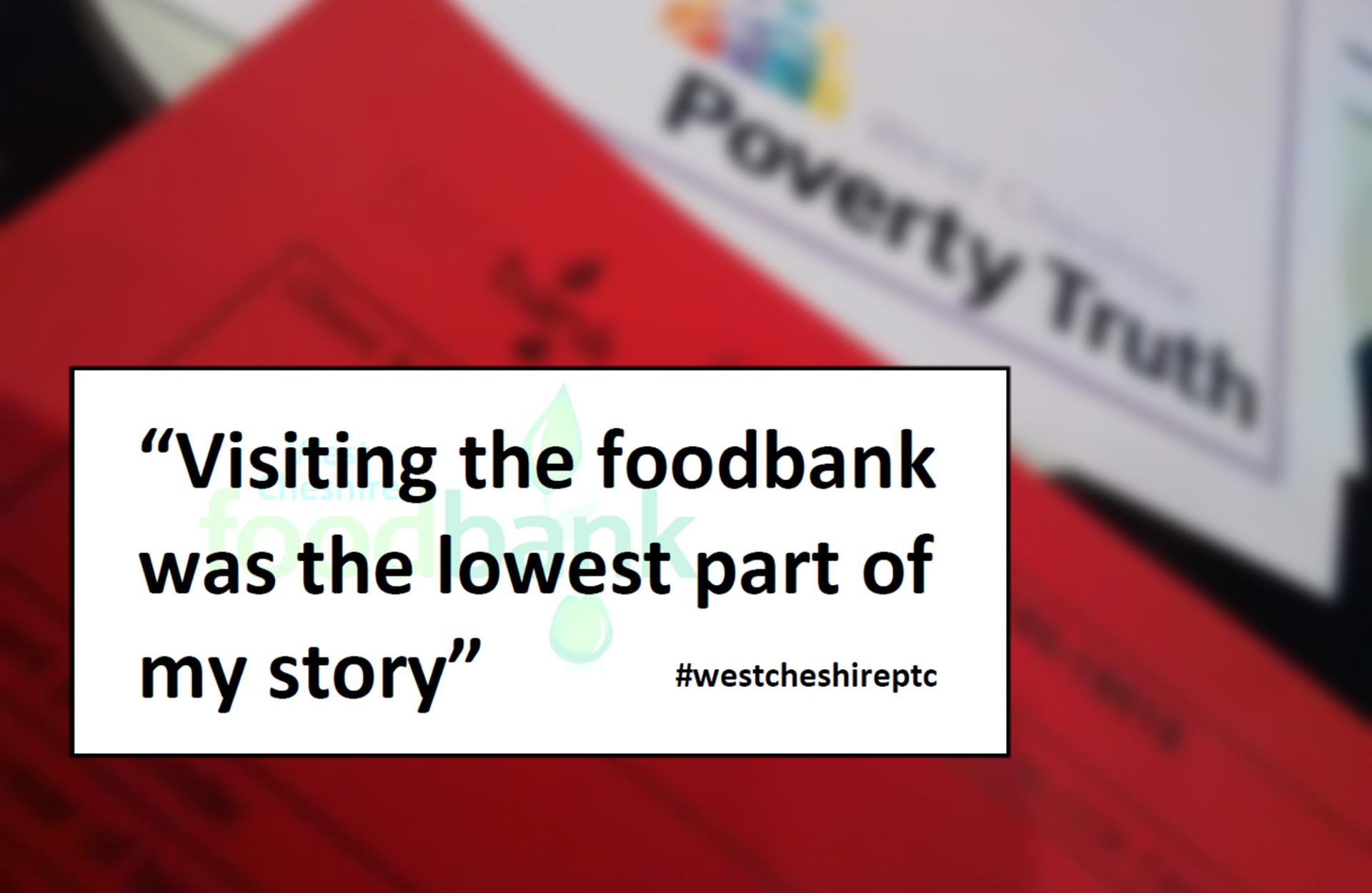Alec Spencer, Development Officer at West Cheshire Foodbank, reflects on more than four years of food parcels and asks ‘‘If we envisage a future without foodbanks, what should our response be now?’
In the last few years, I have witnessed and been an integral part of the development of local foodbanks as a response to the public health crisis caused by rising food poverty. This experience means that I can’t help but be impressed by the commitment and generosity of the people who volunteer their time and donate food on a regular basis. In the last four years, volunteers at West Cheshire Foodbank alone have distributed enough three day emergency food parcels for 15,577 adults and 7,393 children. And the West Cheshire Foodbank is just one of many in this Diocese.
But increasingly, I’m troubled by concerns that such generosity is actually shoring up unjust systems rather than tackling the underlying problems. I have witnessed a retreat of the welfare state and foodbanks have moved into that space. Problems with benefits – whether delays, changes or sanctions – account for two-thirds of referrals to West Cheshire Foodbank. I am very unhappy that there are such large gaps in welfare provision and we would like to step back from filling those gaps. I am also worried that it has become acceptable that people aren’t paid enough so they can afford to eat. This can’t be justified by the idea that foodbanks will help them out. Charity is not a substitute for justice. We need people who are in work to be paid a real living wage that meets the cost of living.
The team at West Cheshire Foodbank has constantly grappled with such challenges and has been committed not only to provide emergency food, but also to ask ‘Why are people going hungry?” We have carefully documented the reasons why people use foodbanks, and what could be done to reduce foodbank use, most recently in our ‘Still Hungry’ report, co-authored with the Universities of Oxford and Chester. The question of why people go hungry has also been at the heart of our work with the West Cheshire Poverty Truth Commission. This has created safe spaces for people with first-hand experience of poverty to tell their stories. At the same time it has also created opportunities for those making decisions to listen. We hope that the project will ensure that the voices of those affected by poverty are then put at the heart of local decision-making process.
It is also important that we now turn our attention to other, equally important ‘justice’ questions which affect the way we work with local communities. Such questions include ‘Are there ways of working that will offer people greater dignity? How can we build stronger communities, tackle injustice and develop skills so that all can afford to eat?’ And, ‘’If we envisage a future without foodbanks, what should our response be now?’
It is also important that we now turn our attention to other, equally important ‘justice’ questions which affect the way we work with local communities.
At a recent “Beyond Food Parcels” event, food bank volunteers, local authority representatives, housing association staff, academics, policy-makers, members of faith and voluntary organisations and people with lived experiences of food poverty all came together to share what they are doing and discuss the barriers and benefits of working in partnership to tackle food poverty. It became clear that we shared a common desire to work together to share stories, co-ordinate resources and gather data to be used in campaigns. It will require openness to work across the boundaries of different organisations, but developing a collaborative approach seems to be a vital first step.

Image: People with direct experience of poverty distributed red foodbank vouchers to people queuing for lunch at the West Cheshire Poverty Truth Commission launch. The message ‘Visiting the foodbank was the lowest part of my story’ was printed on the back of the voucher. Credit: Alec Spencer
In West Cheshire, these conversations and experiences are helping to shape the work of a newly emerging ‘Welcome Network’ with a vision to establish friendly, welcoming places which bring people and organisations together to reduce loneliness, end food poverty and create sustainable lives. One initiative we have developed is at Wesley Methodist Church in Chester. It is called ‘Meet Cook and Eat’ and involves single adults who have particularly complex and enduring needs. We make bread and soup together with aim of building relationships. Elsewhere, we are working in partnership to tackle holiday hunger through holiday clubs for kids which involve healthy meals alongside sports and games. These kind of activities are a response to the challenges and limitations of the foodbank model. We want to encourage the creation of much more open and inclusive spaces which are active and participatory and where we are seeking to add to peoples’ sense of dignity and self-worth. We also want spaces that are equal, so we remove the lanyards and markers of place, position and status.
Now, with so much commitment from local people; the leadership of a local MP, and funding secured for two people to co-ordinate this work, we have a way to move forward. By working closely with others, including people with lived experiences of poverty, we plan to learn how to tackle food poverty in a very different way. We mean it when we say: no-one in our community should have to turn to a foodbank.

